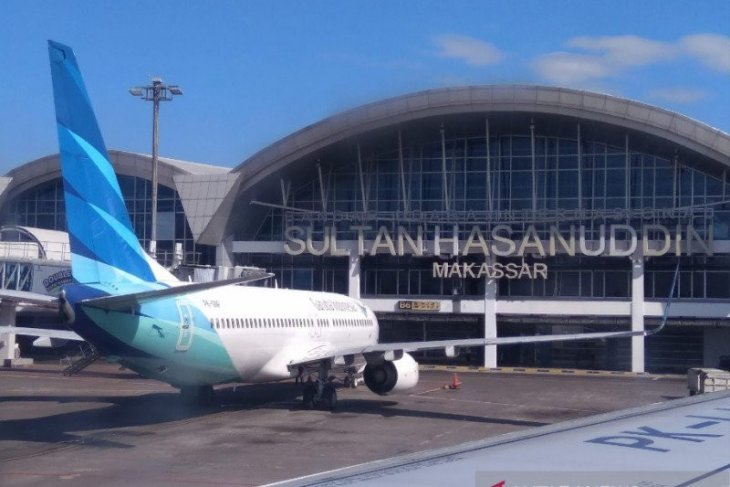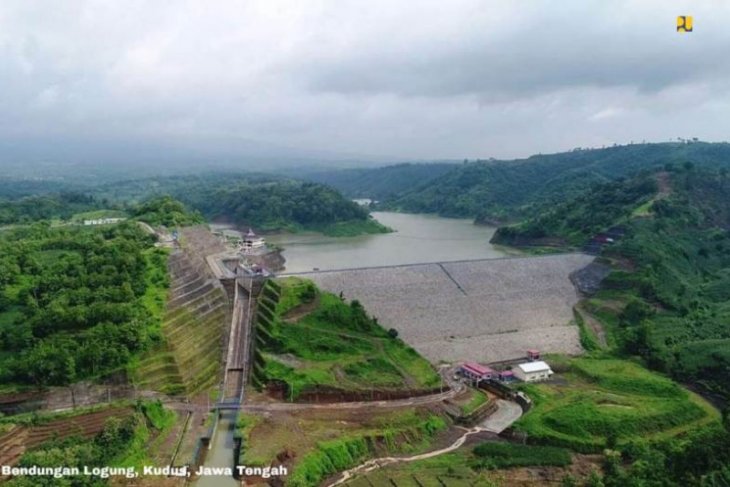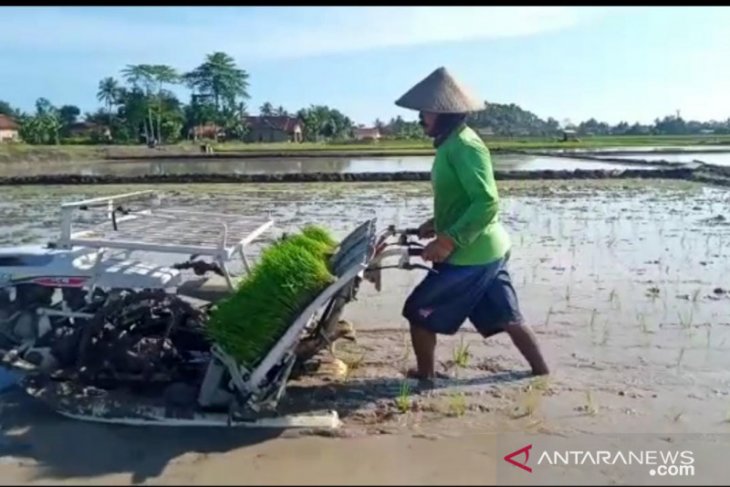Live Streaming
Program Highlight
Company Profile

Ani Hasanah
May
Wisma Atlet Emergency Hospital for COVID-19 treatment in Kemayoran, Jakarta. ANTARA PHOTO/Aditya Pradana Putra/aww/aa.
The Wisma Atlet Emergency Hospital for COVID-19 treatment in Kemayoran, Jakarta, recorded a total of 1,936 recoveries from March 23 to May 25, 2020.
The hospital registered 3,965 inpatients during the period, of which 1,936 were discharged," Brigadier General Suhardi, the hospital’s spokesman, stated in Jakarta on Monday.
The recoveries on Monday rose by 61, from 1,875 on Sunday, May 24.
The hospital also recorded that 118 patients were referred to other hospitals, while three had succumbed to the disease.
On Monday, the Wisma Atlet Hospital had treated 909 inpatients testing positive for the novel coronavirus disease (COVID-19).
"The number of inpatients at the Wisma Atlet Hospital totals 933 people, comprising 611 men and 322 women," he stated.
Of the total 933 inpatients, 909 people had tested positive, 17 were under surveillance (PDP), and seven were under monitoring (ODP).
In the meantime, the COVID-19 Emergency Hospital on Galang Island, Batam, Riau Islands Province, had treated 51 patients, constituting 24 COVID-19 positive patients and 27 PDPs.
Since April 12, the Galang Island Hospital has registered a total of 114 patients, of which 63 patients had recovered and were discharged from the hospital or were required to undergo independent isolation. No COVID-19 patients died at the Galang Island Hospital. (ANTARA)
May

A plane of Garuda Indonesia at the Sultan Hasanuddin International Airport in Makassar. (ANTARA/Suriani Mappong/sw)
The COVID-19 pandemic has left Garuda Indonesia, the state-owned airline, with no choice but to ground 70 percent of its aircraft while also conducting checks and maintenance of planes to ensure their airworthiness.
"During this outbreak period, we have grounded several of our aircraft since the cut in flight traffic. Thus, the operation of flights has been paused," Technical Director of Garuda Indonesia Rahmat Hanafi stated in an official Instagram post @garuda.indonesia on Monday.
Several technicians from GMF AeroAsia are working hard to ensure the planes’ airworthiness by adhering to a prolonged inspection mechanism, including covering the aircraft’s inlet and exhaust to prevent the entry of particles into the machines, Hanafi expounded.
In-cabin maintenance processes include cabin and lavatory cleaning, as well as disinfecting the seats and cushions, in addition to taking off the seat covers. The entire process regularly takes some 14 days to conduct.
It will be conducted two to three days before its operations.
"Thus, the aircraft will not encounter any snag, and comfort, safety, and health aspects are maintained during flights," he noted.
Garuda Indonesia owns 142 aircraft, comprising Boeing 777-300ER, Boeing 737-800NG, Airbus A330-200, Airbus A330-300, Airbus A330-900neo, CRJ1000 NextGen, and ATR 72-600, with lifespan averaging 6.62 years. (ANTARA)
May
Government to Raise Water Storage Infrastructure Capacity against Drought

Logung Dam in Kudus, Central Java. (ANTARA/HO- Kementerian PUPR)
The Ministry of Public Works and Public Housing (PUPR) will optimize the capacity of water storage infrastructure across Indonesia as a precautionary measure against protracted drought during the dry season.
PUPR Minister Basuki Hadimuljono highlighted President Joko Widodo's instructions that the government should guarantee water supply for food, health, and basic services during the COVID-19 pandemic.
"Hence, the Ministry of PUPR will adopt measures to guarantee the availability of water during the dry season," Minister Hadimuljono noted in a statement here on Friday.
Field monitoring results indicated that 241 reservoirs cover 16 main reservoirs holding 4,721 billion cubic meters of water to supply to irrigation areas measuring 512,515 hectares, or 96.57 percent of the total 530,738 hectares.
Of the 16 main reservoirs, 10 reservoirs with normal water levels are Jatiluhur, Cirata, Saguling, Batutegi, Sutami, Wonorejo, Bili-Bili, Kalola, Way Rarem, and Ponre-Ponre.
Meanwhile, six reservoirs holding below-normal levels of water are Kedungombo, Wonogiri, Wadas Lintang, Cacaban, Selorejo, and Batu Bulan.
In addition to the dams, the Ministry of PUPR monitors water availability in 4,227 retention basins and 344 weirs, with a volume capacity of 338.8 cubic meters.
Moreover, the ministry has readied 7,914 bore wells by utilizing an irrigation network of groundwater and raw water spanning an area of 118,652 hectares and groundwater for raw water of 2,386 cubic meters per second. Of the total, 4,098 bore wells are functioning normally, while operational disruptions are being encountered in the remaining 3,816 bore wells.
Of the 4,098 normally functioning bore wells, 488 are located in Sumatra, while 46 wells are in Kalimantan, 701 in Sulawesi, 1,514 in Java, 1,190 in Bali-Nusa Tenggara, two in Maluku, and 148 wells in Papua.
The Meteorology, Climatology, and Geophysics Agency (BMKG) has projected this year’s dry season to occur in April, dominant in May, June, and July, while peaking during the period from August to September 2020.
The hydrological drought is forecast to chiefly impact 10 provinces -- West Java, Central Java, Yogyakarta, East Java, South Sulawesi, Bali, West Nusa Tenggara (NTB), East Nusa Tenggara (NTT), Maluku, and Papua -- with affected areas in 90 districts and cities.
Moreover, agricultural areas forecast to be affected by drought are located in the 10 provinces of West Java, Central Java, Yogyakarta, East Java, South Sulawesi, Bali, NTB, NTT, Maluku, and Papua, with 1.14 million hectares of irrigation areas to be affected. (ANTARA)
May

An Indonesian farmer works in a paddy field. ANTARA/HO-Kementan
The Agriculture Ministry is implementing a program called the Paddy Planting Acceleration Movement in several regions to encourage early planting activities as a precautionary measure against a food crisis during the COVID-19 pandemic.
The ministry has urged farmers to plant paddy early and simultaneously, Minister of Agriculture Syahrul Yasin Limpo noted in his statement in Jakarta on Friday.
"In response to President Jokowi’s directive as a precautionary measure against the food crisis, the Paddy Planting Acceleration Movement must be implemented despite a rice surplus in some areas," he remarked.
Every stakeholder must work hard to prevent a possible food crisis in the wake of the ongoing COVID-19 pandemic.
The government has outlined two strategies to prevent a food crisis, with the first being to encourage planting of crops earlier than schedule, while the second pertains to delivering the necessary infrastructure and facilities promptly to support the planting process, according to the minister.
Meanwhile, Head of the Agricultural Human Resources and Development Agency (BPPSDM) Dedi Nursyamsi stated that farmers must keep up the spirit of planting, processing, and harvesting since food is a crucial issue and a determining factor for the development and prosperity of a nation.
Despite the COVID-19 outbreak, farmers and agricultural officers must strive hard, as planting activities must continue since the food demand remains high.
The Meteorological, Climatology, and Geophysics Agency has forecast prolonged drought during this year's dry season in Indonesia.
Rains are expected to fall in several regions for the rest of May this year.
Furthermore, the Public Works and Public Housing Ministry has readied several dams, reservoirs, water retention basins, bore wells, and other facilities to store water, particularly for irrigation purposes. (ANTARA)


